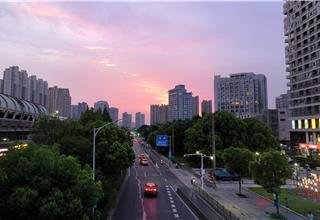China’s domestic passenger vehicle (PV) market saw a slight decline in July 2024, with retail sales totaling 1.72 million vehicles. This marked a 2.8% decrease compared to the previous year and a 2.6% drop from the previous month. However, despite this slight downturn, the overall PV retail sales for the first seven months of the year showed a 2.3% increase compared to the same period last year.
The China Passenger Car Association (“CPCA”) reported that the economic landscape in July faced challenges due to rising external uncertainties and weak internal demand, with consumer expectations remaining low. However, the government’s trade-in policies promoting vehicle scrappage and renewal proved effective in stimulating demand. This led to new energy vehicle (NEV) sales exceeding expectations, with various regional policies introduced to further boost demand.
The market dynamics have shifted, with a noticeable decline in the market share of traditional oil-fueled vehicles due to the impact of NEVs and a shrinking first-time car buyer segment. Despite challenges such as high temperatures and peak tourist season affecting foot traffic in non-supermarket stores, new automobile orders maintained positive momentum, contributing to overall market growth.
In July, China’s self-owned brands dominated the PV retail market, with 1.06 million units sold, marking a 13% year-on-year increase. These brands held a 61.8% share of the domestic retail market, up 8.5 percentage points from the previous year. Additionally, indigenous brands accounted for 57% of the PV market in 2024, showing a significant increase compared to the previous year.
Mainstream joint-venture brands experienced a decline in July, with retail sales totaling 440,000 units, a 25% decrease year on year. Premium car retail sales also saw a decline, reaching 220,000 units in July, an 11% decrease compared to the same period last year.
Among the top 10 automakers by July PV retail sales, five companies showed positive momentum compared to the previous year. BYD led in monthly retail sales, while Chery Auto and Li Auto witnessed a significant increase in PV retail volume.
China’s PV wholesale sales in July totaled 1.965 million units, a 4.9% year-on-year decline. Wholly-owned brands recorded a 9% year-on-year increase in wholesale volume, while mainstream joint-venture brands saw a 31% drop compared to the previous year. Premium car wholesale volume reached 242,000 units, down 13% year-on-year.
Major passenger car manufacturers displayed varied performances in July, with some showing robust strength. In terms of PV production, China produced 1.982 million units in July, a 5.3% year-on-year decrease. Automobile exports continued to show strong growth, with 553,000 vehicles exported in July, a 26% increase year-on-year.
Overall, China’s PV market remains dynamic, with shifts in consumer preferences and government policies influencing market trends. Despite challenges, the industry continues to show resilience and adaptability, with both domestic and international factors shaping the future of the market.







